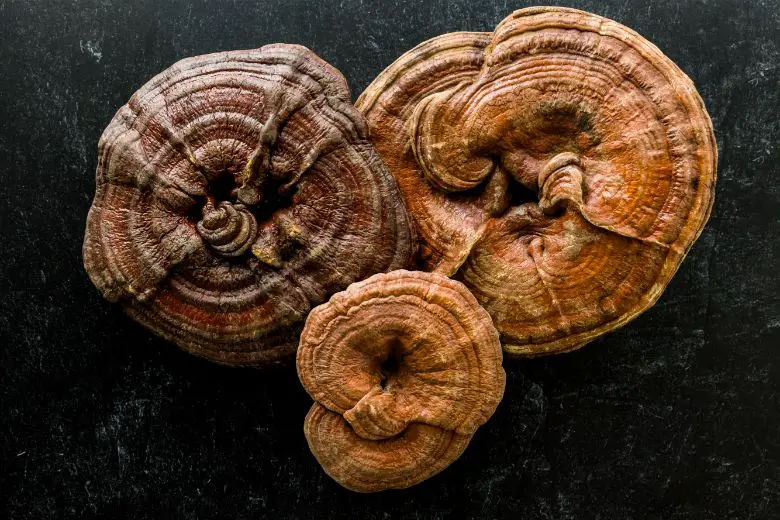
The reishi mushroom (Lingzhi mushrooms or Ganoderma lucidum) is a polypore mushroom that grows on trees in Eastern Asia. It has been used for centuries in traditional Chinese medicine to treat a variety of ailments and promote health and longevity. More recently, reishi has gained popularity in the Western world for its potential health benefits.
One question that often comes up is whether reishi mushrooms are psychoactive or can produce any mind-altering effects. Here’s a closer look at this topic.
The History and Cultural Significance of Reishi Mushrooms
Reishi mushrooms have a rich history deeply rooted in traditional medicine systems, particularly in East Asia. For over 2,000 years, these mushrooms have been highly regarded in Chinese and Japanese cultures for their potential to promote longevity, enhance vitality, and improve overall well-being. They were reserved for emperors and royalty due to their rarity and esteemed status. Reishi mushrooms were often depicted in ancient artwork as symbols of good fortune, longevity, and spiritual enlightenment.
What Does Psychoactive Mean?
To better understand if reishi mushroom is psychoactive or not, we first need to define what psychoactive means.
In general, a psychoactive substance is any chemical that can alter brain function and produce changes in sensation, cognition, or mood when consumed. Examples of classic psychoactive drugs include LSD, marijuana, psilocybin mushrooms, and mescaline-containing cacti.
However, not all substances that interact with the brain are considered psychoactive.
Things like caffeine and nicotine are considered psychoactive stimulants due to their mood and cognitive effects, but things like certain herbs and extracts may have neurological impacts without being truly psychoactive.
Now the Question Is, Does Reishi Contain Psychoactive Compounds?
When examining the chemical constituents of reishi mushrooms, there do not appear to be any compounds present that are considered classic psychedelics.
Reishi does not contain any psilocybin, psilocin, LSD-like compounds, mescaline, or DMT that are known to directly activate serotonin receptors in the brain to produce psychedelic-type effects.
Some proponents have pointed to triterpenoid compounds in reishi called ganoderic acids as possibly psychoactive. However, while ganoderic acids may cross the blood-brain barrier and impact neurochemistry, available research suggests they work through mechanisms like modulating inflammation and oxidation rather than directly binding to neurotransmitter receptors in the brain.
They would be considered psychoactive in a broader sense of influencing brain function, but not in a way that mimics classic psychedelic drugs.
Subjective Reports of Effects
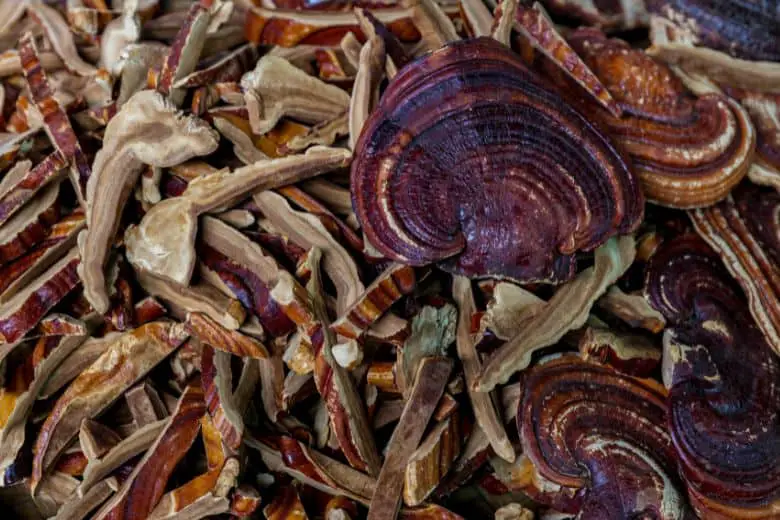
Anecdotally, some people report unusual or altered states of mind after consuming reishi, such as vivid dreams, changes in emotion, or brief detached experiences.
However, these effects tend to be mild and inconsistent compared to the more intense and reliable experiences produced by true psychedelics like psilocybin mushrooms.
The dream potentiation and mild stimulant/sedative effects reishi seems to have at higher doses, in combination with the expectation bias of consuming a mushroom, could partly explain these subjective anecdotes.
Therefore, there is little scientific evidence that reishi directly interacts with brain pathways in a classic psychedelic manner.
Any mild psychoactivity is likely an indirect result of its modulatory impacts on other physiological systems.
1. The Effects of Reishi Mushrooms on the Mind and Body
Reishi mushrooms are renowned for their ability to promote relaxation, reduce stress, and support mental well-being.
Consequently, these effects are not due to psychoactive properties. Instead, they are the result of the mushroom’s influence on the immune system, modulation of stress response pathways, and regulation of neurotransmitters.
Reishi mushrooms have been reported to enhance mood, improve sleep quality, and reduce anxiety and depression symptoms in some individuals.
2. Differentiating Between Psychoactive and Medicinal Properties
It’s essential to differentiate between psychoactive and medicinal properties when discussing Reishi mushrooms.
While Reishi mushrooms have profound health benefits and can positively impact mental well-being, they do not induce hallucinations, alter perception, or produce euphoria like psychoactive substances.
The therapeutic effects of Reishi mushrooms are grounded in their ability to support the body’s natural healing mechanisms and promote overall balance and vitality.
3. Safety Considerations and Potential Side Effects
Reishi mushrooms are generally considered safe for most individuals when consumed in moderate amounts.
Eventually, one should consult with a healthcare professional before incorporating Reishi mushrooms into your routine, especially if you have underlying health conditions or are taking medications.
Some individuals may experience mild side effects, including digestive discomfort, dry mouth, or skin rashes.
Additionally, Reishi mushrooms may interact with certain medications, such as blood thinners or immunosuppressants.
Traditional Medicinal Uses
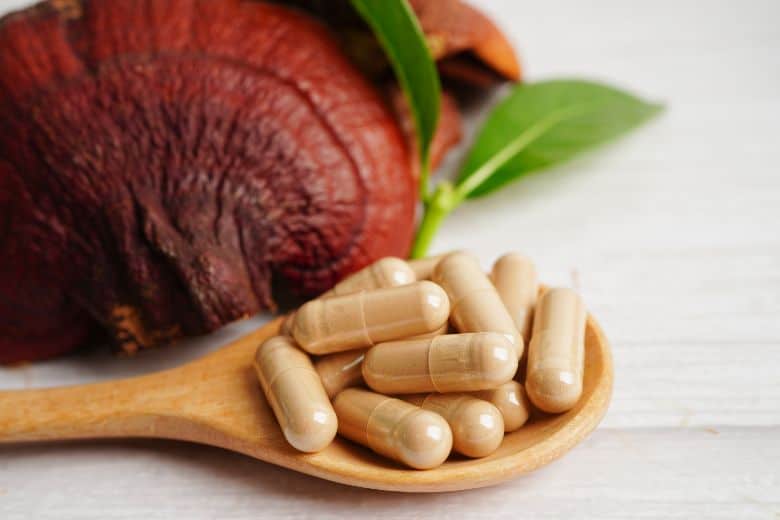
Traditional use of reishi in Chinese medicine does not cite any psychoactive or hallucinogenic properties as part of its therapeutic value. Reishi was valued more so for enhancing energy, boosting immunity, calming the spirit, and promoting longevity rather than psychedelic or entheogenic purposes. This suggests that while reishi may have some subtle neurological influence, it was not utilized historically as a psychoactive medicine in the same way as psilocybin or peyote.
Potential Brain Benefits Without Psychedelic Effects
Even though reishi mushroom may not be literally psychoactive, it does seem to interact beneficially with the brain and nervous system:
- Antioxidant compounds in reishi called ganoderic acids have demonstrated neuroprotective effects by combating free radical damage linked to neurodegenerative diseases.
- Reishi may help modulate inflammatory processes in the brain and nervous system that contribute to cognitive decline as well as psychiatric conditions.
- Compounds in reishi, like polysaccharides, sterols, and terpenoids, appear to interact with brain receptors for dopamine, serotonin, and opioids, which are involved in mood, addiction, and alertness. However, they don’t bind powerfully enough to induce psychedelic effects directly.
Note:
So, in summary, while reishi is not considered a true psychoactive substance, it does exercise therapeutic influence in the brain and nervous system through multimodal pharmacological activities and antioxidant/anti-inflammatory mediated mechanisms rather than direct hallucinogenic receptor agonism. The effects are milder and more indirect versus a classic psychedelic drug experience.
Are There Any Risks?
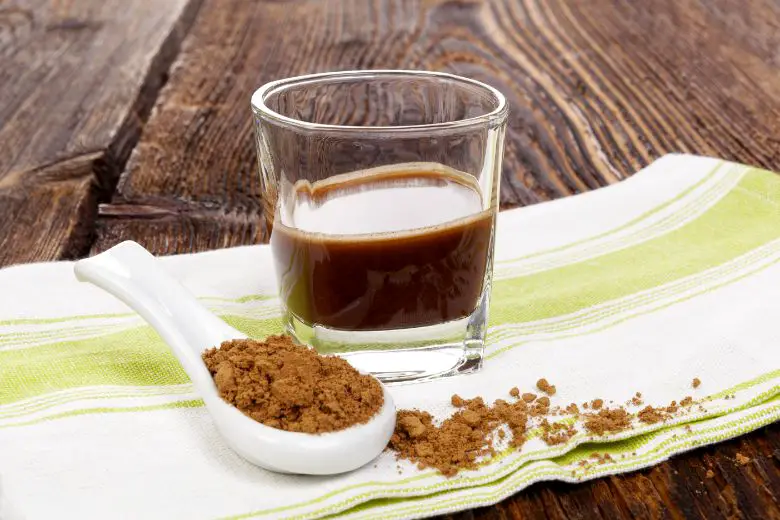
When consumed in moderation as a supplement or tea, most people tolerate reishi mushrooms quite well, with no reported psychedelic or dissociative reactions. However, there are a few considerations:
- Allergic reactions, such as contact dermatitis or respiratory issues, can occur in sensitized individuals who are allergic to fungi.
- High dosing for extended periods, particularly of non-quality standardized extracts, theoretically raises the potential for unfavorable interactions due to reishi’s broad pharmacological impacts. However, toxicity is still considered fairly low.
- Those with serious liver, kidney, or cardiovascular diseases should consult a medical professional before trying reishi due to its detox/metabolic impacts and potential for drug interactions.
- Interactions with certain psychiatric medications are unknown but possible, so it’s best to be cautious if taking SSRIs, sedatives, or similar types of prescription.
In general, moderate use of reishi as a culinary or supplement appears to be safely non-psychoactive for the majority of healthy consumers. But as with any natural product, individual body sensitivities and medical history factors need consideration as well.
Does that Help Answer if Reishi is Psychoactive?
In summary, while reishi mushroom has been shown to interact with neurotransmitter systems in the brain and nervous system to produce mild physiological, cognitive, and mood-modifying effects when consumed – available scientific evidence indicates it lacks the classical hallucinogenic/psychedelic properties of true psychoactive drugs due these key findings:
- Reishi does not contain any known tryptamines, phenethylamines, or other compounds that strongly bind to serotonin and other receptors to cause psychedelic experiences directly.
- Traditional applications in Chinese medicine did not cite psychoactivity as part of its therapeutic properties.
- Subjective reports of altered states from reishi are mild and inconsistent compared to classic psychedelics.
- Effects are more anti-oxidant, anti-inflammatory, and neuroprotective in nature versus direct receptor agonism.
Therefore, while reishi may influence brain function to a degree by modulating neurochemistry indirectly – it is not considered to be literally psychoactive in the sense of directly activating serotonin pathways to induce hallucinogenic states reliably. For most healthy individuals, reishi provides potential brain benefits without psychoactive side effects when used conservatively as a culinary or supplement. But as always, thorough research and weighing medical factors are recommended.


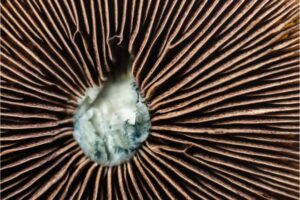
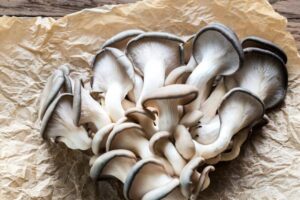
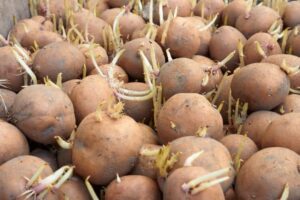
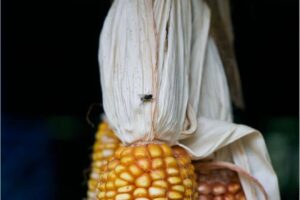
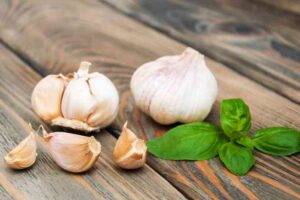

One Comment